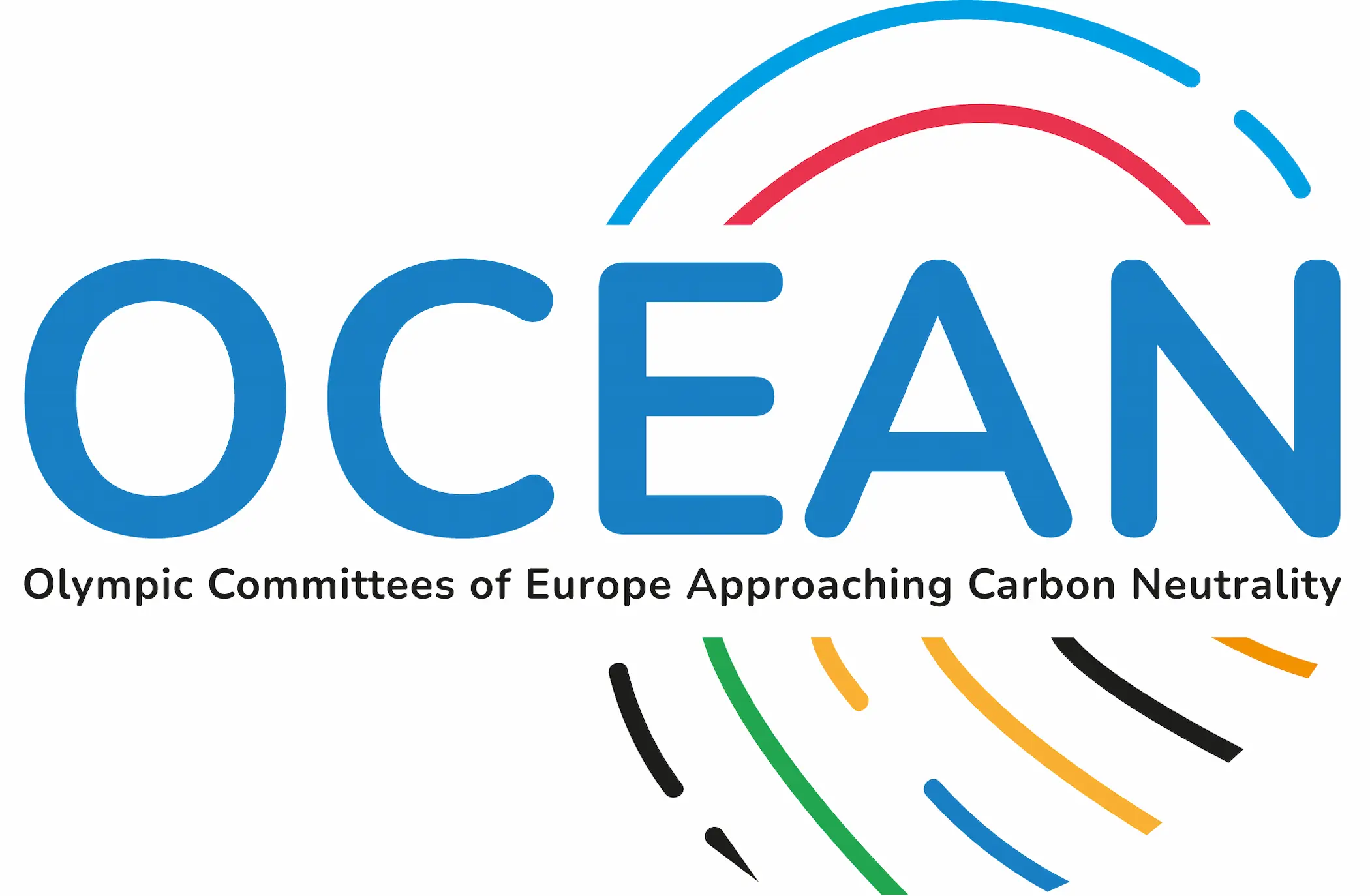In January, the OCEAN Project celebrated its second anniversary and officially entered its final phase with Climate Action Officers from 18 National Olympic Committees (NOCs) advancing on their path to reduce their carbon footprints as part of a collective effort to tackle climate change.
Analysis of 18 NOCs’ carbon footprint
Throughout the project, the 18 NOCs have completed their carbon footprint measurement for 2022, marking the first step towards mitigating their environmental impact. The Comparative analysis of the NOCs’ footprints, presented by Öko-Institut, highlights primary sources of emissions. Building on these results, the NOCs are now working towards adopting a carbon footprint reduction strategies by April 2025, aligned with the UN Sports for Climate Action Framework (S4CA), supported by the International Olympic Committee.
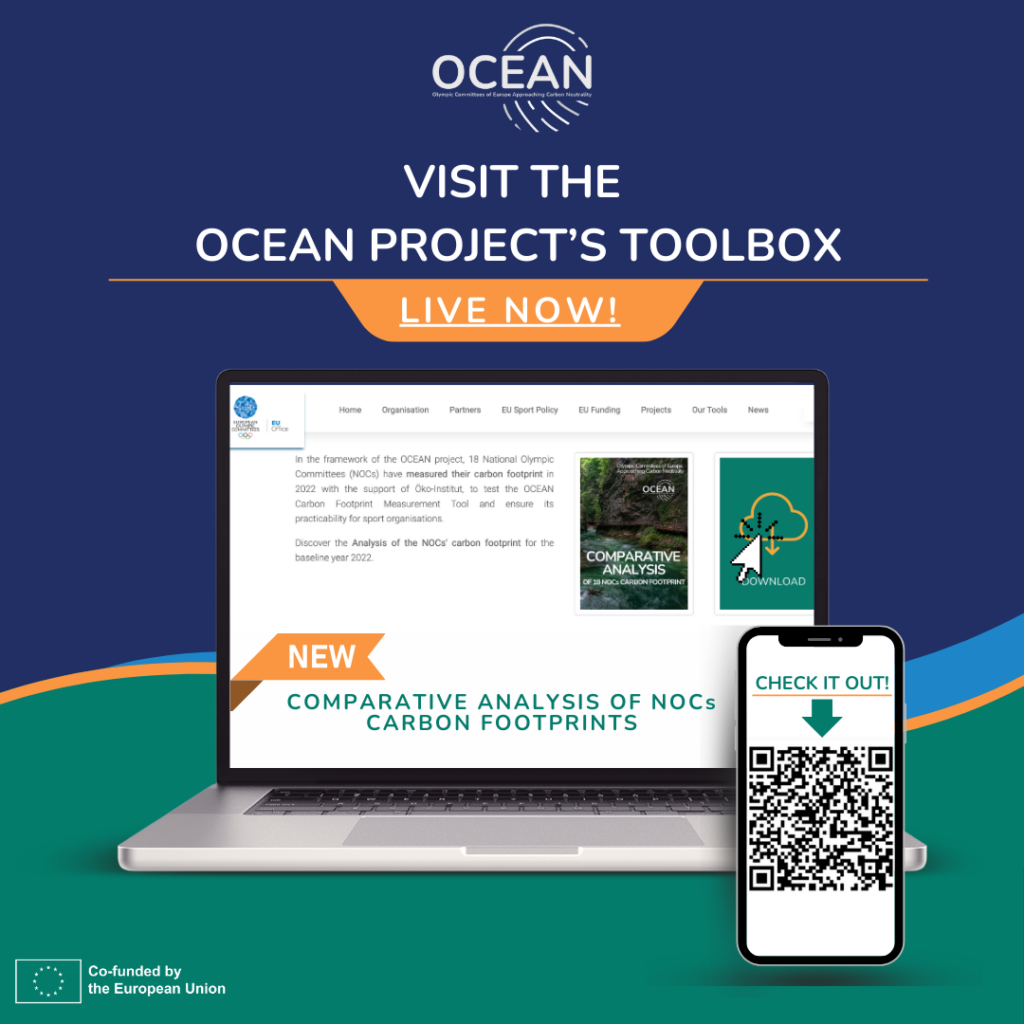
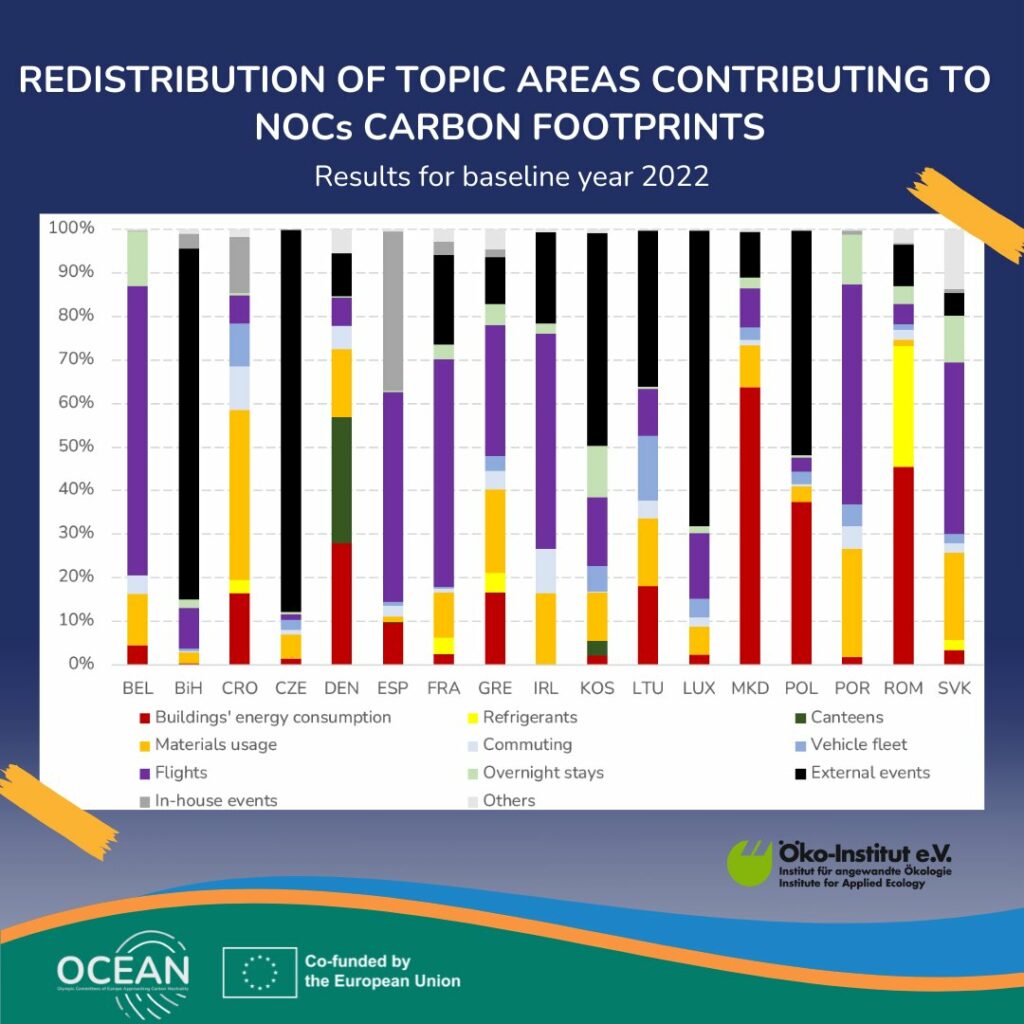
Guide for Climate Action Officers
This comprehensive process has included a structured five-module training course for Climate Action Officers, covering key topics such as the fundamentals of climate change, measures to reduce the impact of transport or procurement, and communication about sustainability. Building on this training, a practical Guide for Climate Action Officers was developed to serve as a step-by-step resource for sport organisations embarking on the carbon footprint reduction process. This guide provides clear, actionable steps tailored to the unique needs of sports entities, enabling them to systematically assess their emissions, identify reduction opportunities, and implement strategies that align with global sustainability goals.
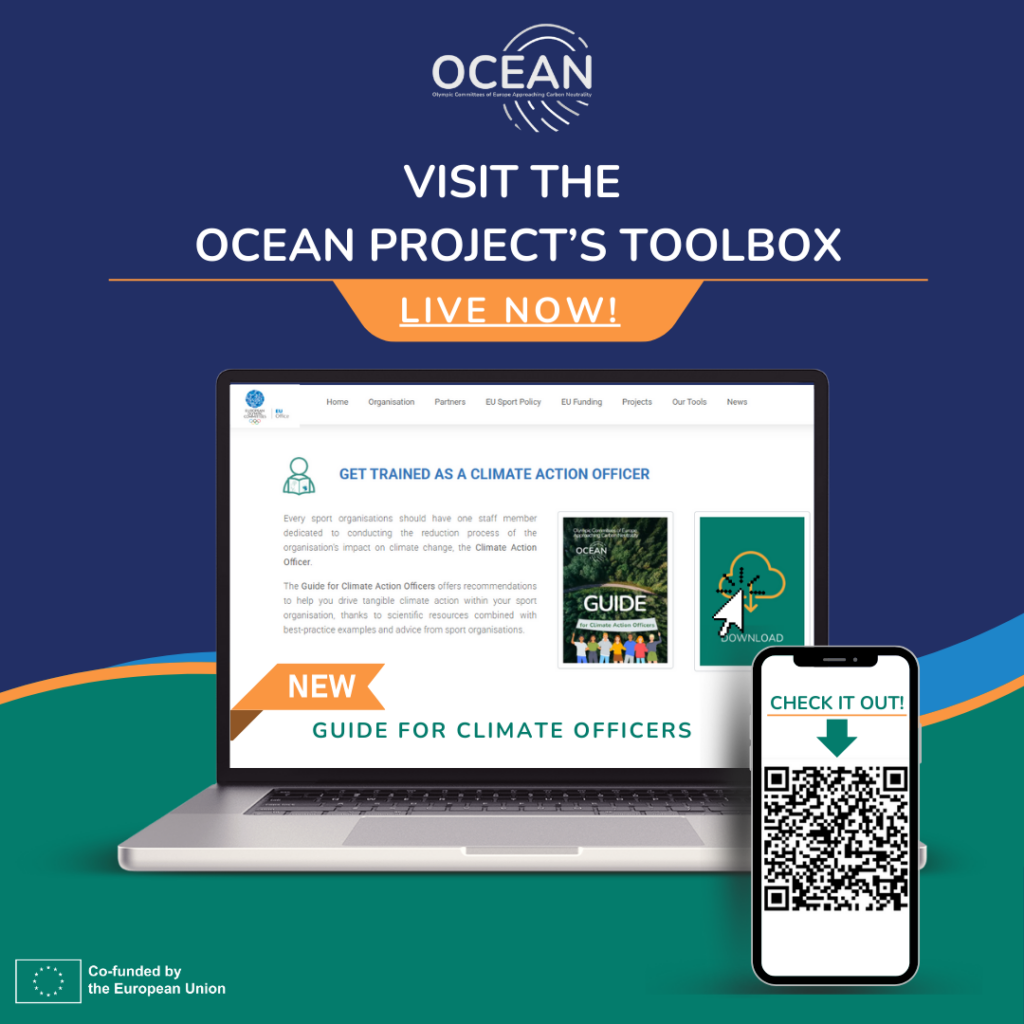
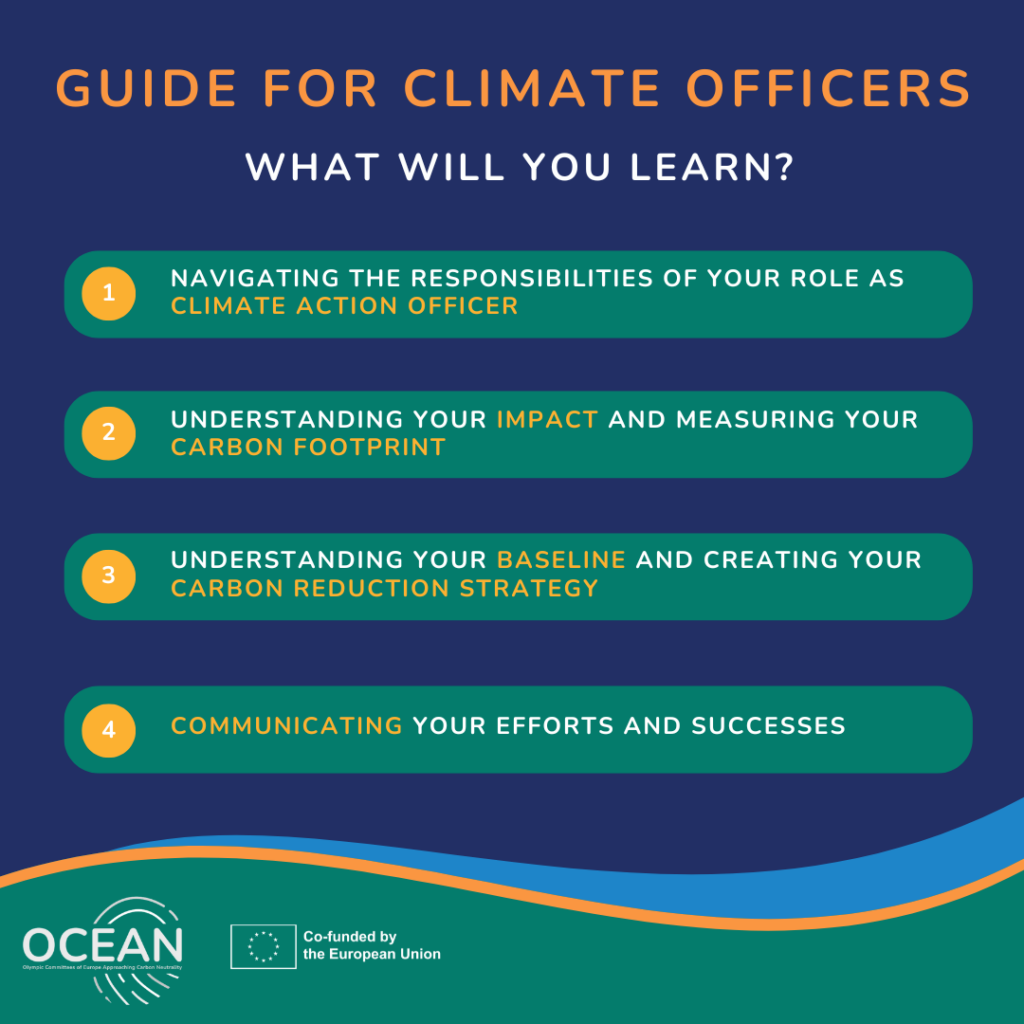
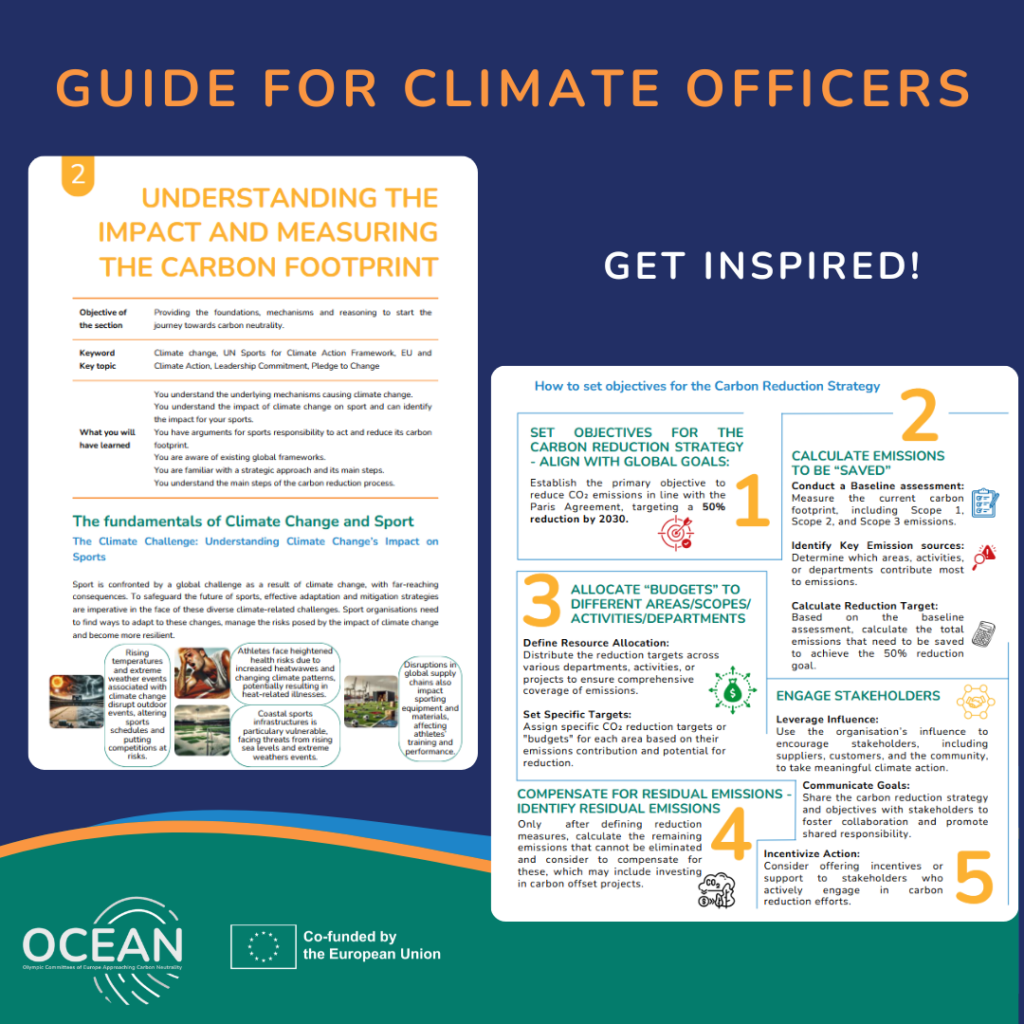
Pool of Actions for carbon footprint reduction
To further support sport organisations in reducing their carbon footprints, the Pool of Actions was developed together with the Öko-Institut. Comprising a collection of over 100 measures and good practices examples to reduce carbon footprint in high-impact areas, such as travel, energy consumption, or event production.
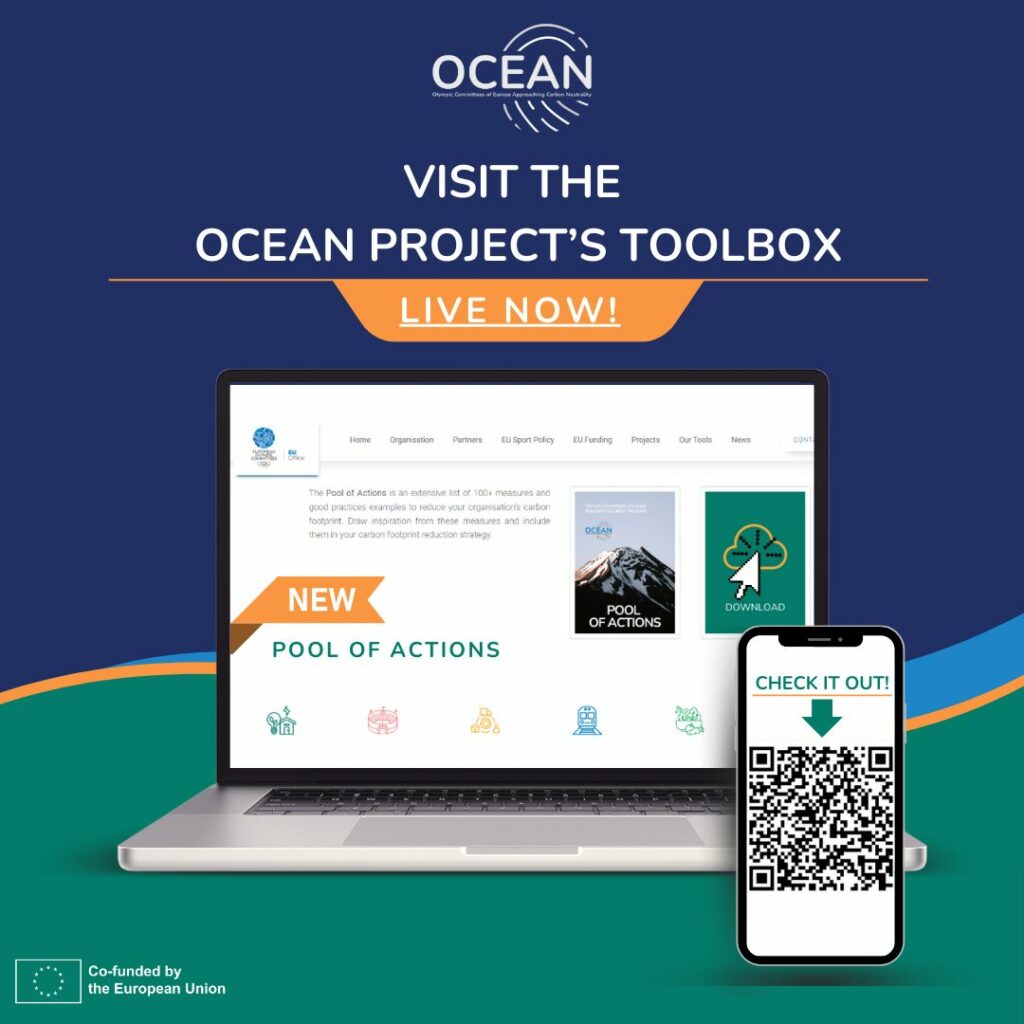
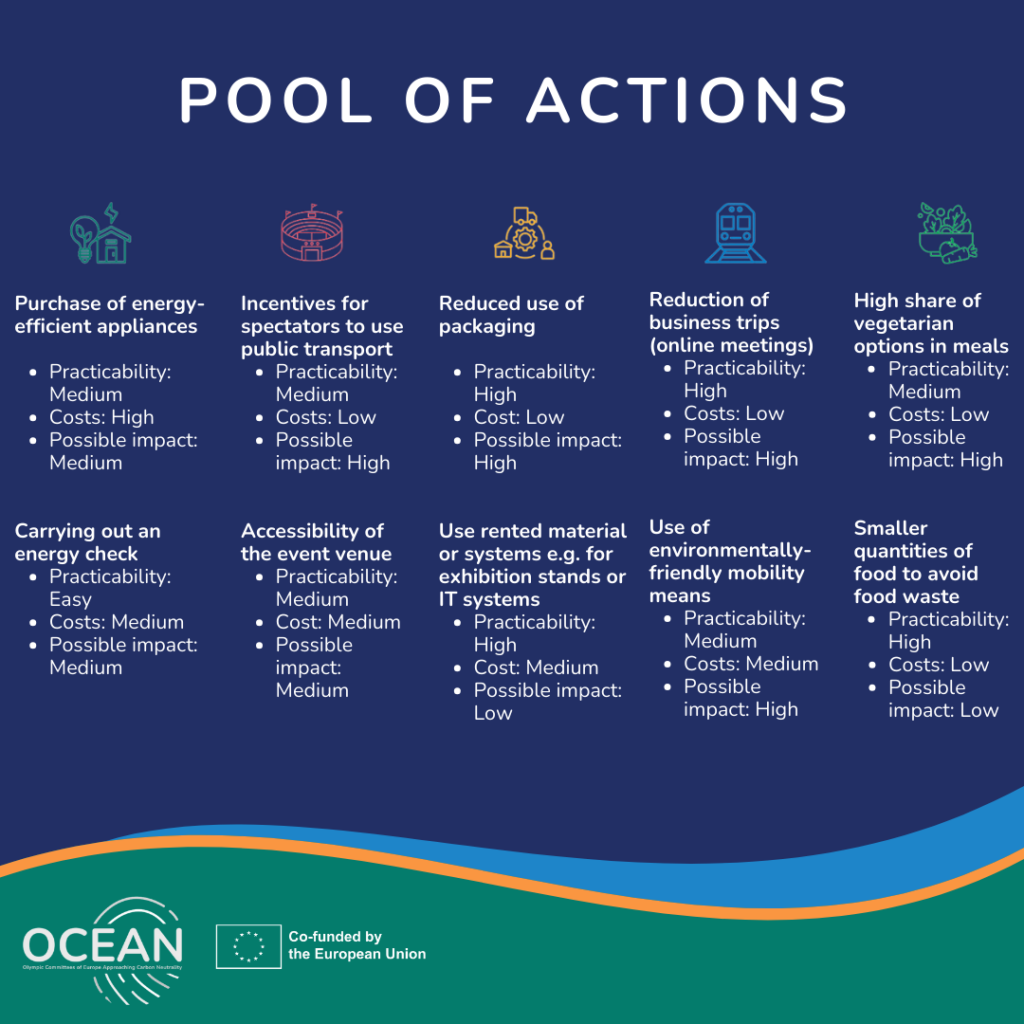
Looking ahead
To empower all sport organisations, the OCEAN Project is also developing Carbon Footprint Measurement Tool which will be soon freely available on the OCEAN Toolbox platform for all 206 NOCs and sport organisations. The tool designed by the Öko-Institut with the 18 NOCs and therefore fits the scope of activities of sport organisations. The tool will be available in English, Spanish, and French.
From April 2025, the carbon Footprint Reduction strategies from the 18 NOCs will be available at the OCEAN Toolbox platform to inspire and encourage NOCs and sport organisations to take on climate action.
